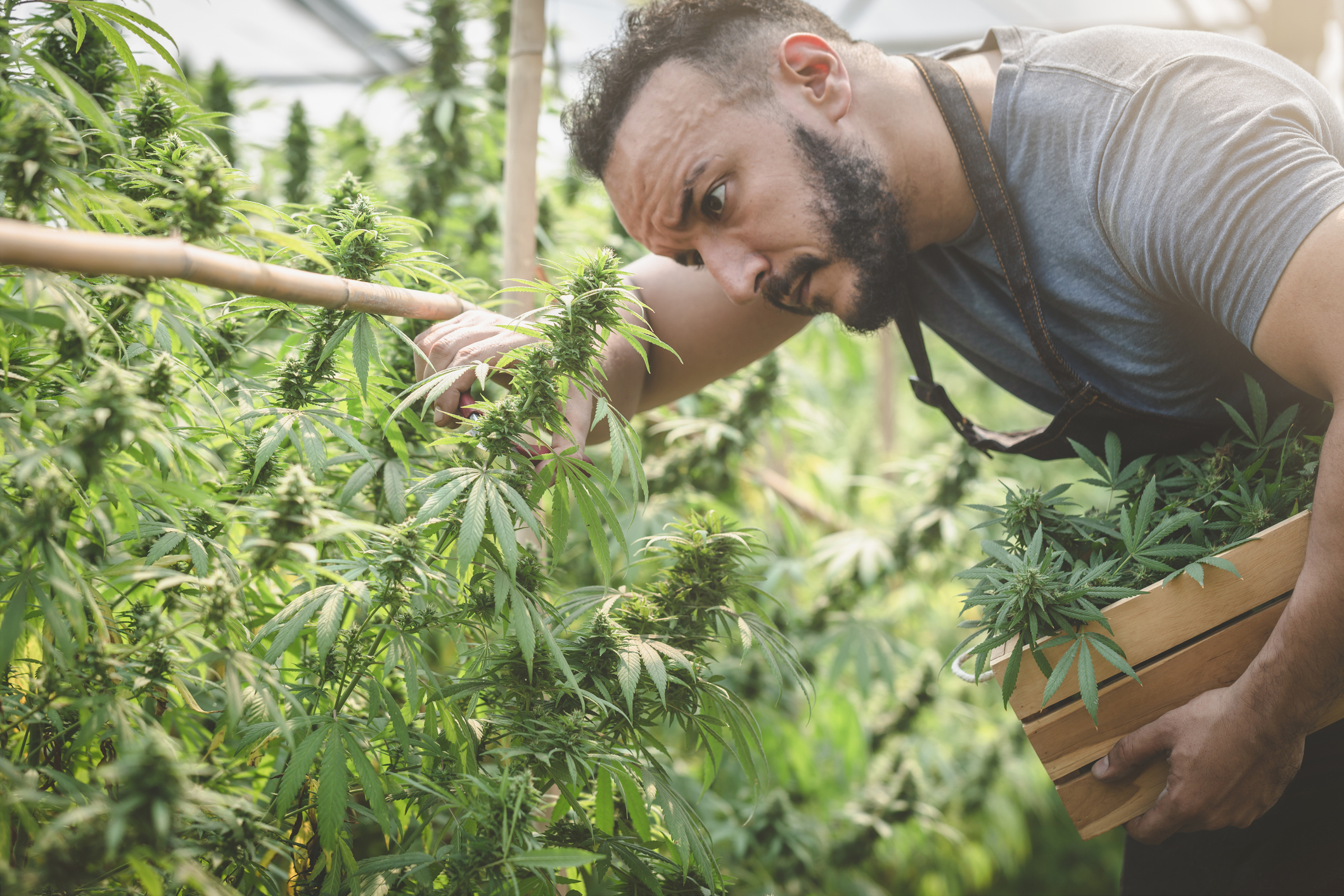What Are The Online Cannabis Sales Legal Requirements
The landscape of cannabissales has undergone significant transformation with the advent of digital marketplaces. The ability to purchase cannabis online has become a reality in many regions, bringing with it a complex web of legal considerations that both businesses and consumers must navigate. The legal landscape for cannabis sales is a patchwork of regulations that vary widely from one state to another, and understanding these legal requirements is crucial for anyone involved in online cannabis sales.
The importance of understanding legal requirements for online cannabis sales cannot be overstated. For businesses, non-compliance can result in hefty fines, loss of license, and even criminal charges. For consumers, purchasing from an unlicensed or non-compliant online store could mean acquiring unsafe products or inadvertently breaking the law. Therefore, it is essential to be well-informed about the legalities surrounding online cannabis sales to ensure a safe and lawful experience.
This information is intended for everyone—from entrepreneurs looking to venture into the online cannabis market to consumers seeking to purchase cannabis products legally online. Whether you are a seasoned cannabis enthusiast or new to the world of online cannabis shopping, understanding the legal framework is the first step towards a compliant and successful online cannabis transaction.
State-Specific Regulations For Online Cannabis Sales
The landscape of online cannabis sales is as diverse as the United States itself, with each state crafting its own set of rules and regulations. Understanding these variations is crucial for anyone looking to engage in the online cannabis market, whether as a consumer or a business owner.
Variations In State Laws And Their Impact On Online Sales
In the United States, the legality of cannabis can vary dramatically from one state to another. Some states have fully legalized cannabis for both medical and recreational use, while others have only legalized medical cannabis, and a few maintain a complete prohibition on cannabis use and sales. This patchwork of legislation means that online cannabis retailers must be acutely aware of the laws in each state where they operate.
For instance, a state with recreational legalization may allow online sales and delivery within its borders, but the specifics of how these transactions can be conducted can differ. Some states require that online orders be fulfilled by licensed dispensaries, while others may allow third-party delivery services to operate. Additionally, the types of products available for sale, the quantity that can be purchased, and the taxation of these products can all vary.
Case Study - HB23-1279 And Its Implications For Retail Marijuana Stores
A prime example of how state legislation can affect online cannabis sales is Colorado's House Bill 23-1279. This bill, if passed, could significantly alter the way retail marijuana stores operate within the state. It proposes changes to the existing framework, potentially allowing for greater flexibility in online sales and delivery services. Retailers would need to adapt their business models to comply with the new regulations, which could include updates to their online platforms, delivery logistics, and age verification processes.
The bill also underscores the importance of staying current with legislative changes. What is permissible today may not be tomorrow, and businesses that fail to adapt can face serious legal consequences.
The Role Of Federal Law In Interstate Commerce And Online Sales
While states have the power to regulate cannabis within their borders, federal law plays a significant role when it comes to interstate commerce. Under federal law, cannabis remains a Schedule I controlled substance, which means that shipping cannabis across state lines is illegal, even between two states where cannabis is legal.
This federal prohibition has a direct impact on online cannabis sales, as it restricts businesses from expanding their market beyond state borders. It also complicates the use of banking and payment processing services, as these often fall under federal regulation. As a result, many online cannabis transactions are conducted in cash or through alternative payment methods, which can pose challenges for both businesses and consumers.
Verification And Compliance In Online Cannabis Transactions
In the evolving world of online cannabis sales, ensuring that transactions adhere to legal requirements is paramount for both consumer safety and business legitimacy. As the industry grows, so does the complexity of compliance, with a particular focus on age verification and product safety.
Age Verification And ID Checks For Online Purchases
One of the most critical aspects of legal online cannabis transactions is the verification of the customer's age. To comply with the law, online cannabis retailers must implement robust systems to ensure that all customers are of legal age to purchase cannabis in their respective states. This typically involves:
- Secure ID verification processes: Online retailers must use advanced technology to verify government-issued IDs, ensuring that the ID is valid and belongs to the person making the purchase.
- Age confirmation at delivery: Some states require an additional age verification upon delivery, which means that the person receiving the cannabis products must also present a valid ID to the delivery personnel.
- Record keeping: Retailers must keep records of these verifications to prove compliance in case of audits or legal inquiries.
Ensuring Product Safety And Legal Compliance
Beyond age restrictions, online cannabis retailers must also ensure that their products meet safety standards and comply with state regulations. This includes:
- Lab testing: All cannabis products should be tested in state-approved labs for potency and contaminants. Retailers should provide customers with access to these lab results.
- Accurate labeling: Products must be labeled correctly, displaying THC content, ingredients, and any potential allergens.
- Secure packaging: Cannabis products should be shipped in child-resistant and tamper-evident packaging to prevent unauthorized access and maintain product integrity.
Digital Provision Of Warnings And Educational Materials
In addition to physical compliance measures, online cannabis retailers are often required to provide digital warnings and educational materials to their customers. This includes:
- Health warnings: Websites must display health warnings about the risks associated with cannabis use, similar to those found on tobacco and alcohol products.
- Educational resources: Many states mandate that retailers provide educational materials on responsible consumption, signs of impairment, and the dangers of driving under the influence.
- State-specific regulations: Retailers should also inform customers of the legal limits on possession and use within their state to promote legal and responsible consumption.
By rigorously adhering to these verification and compliance measures, online cannabis retailers can operate within the legal framework, providing a safe and trustworthy experience for consumers. It is essential for businesses to stay up-to-date with the latest regulations and technological advancements in age verification and product safety to maintain compliance and protect their operations from legal repercussions.
Limitations And Prohibitions On Online Cannabis Sales
The burgeoning world of online cannabis sales is not without its restrictions and outright bans. While the digital marketplace offers convenience and accessibility, it's crucial for both consumers and businesses to be aware of the federal restrictions and state-specific rules that govern the online sale and distribution of cannabis products.
Federal Restrictions On Shipping And Mail-Order Cannabis
Despite the legalization of cannabis for medical or recreational use in many states, it remains a Schedule I controlled substance under federal law. This classification has significant implications for online cannabis sales, particularly when it comes to shipping and delivery services.
Shipping cannabis across state lines is illegal, regardless of the legal status of cannabis in the originating or destination state. This prohibition extends to all carriers, including the United States Postal Service(USPS), FedEx, UPS, and DHL. Violations can result in severe penalties, including fines and imprisonment.
Moreover, even within states where cannabis is legal, the use of federal postal services to deliver cannabis is prohibited. Businesses must rely on private, state-licensed delivery services to transport cannabis directly to consumers, adhering to strict state regulations that govern such operations.
State-Specific Rules On Out-of-State Purchases And Transport
Each state that has legalized cannabis has developed its own set of rules and regulations regarding the purchase and transport of cannabis products. These rules can be complex and often include:
- Residency requirements: Some states only allow residents to purchase cannabis, while others may permit non-residents to make purchases but with lower possession limits.
- Purchase limits: States impose limits on the amount of cannabis that can be purchased within a certain timeframe.
- Transport restrictions: Even within legal states, there may be rules about how and where cannabis can be transported (e.g., in a sealed container, away from the driver's reach).
For online cannabis retailers, these regulations mean that they must be meticulous in verifying the location and eligibility of their customers. They must also ensure that their delivery methods comply with all state laws, including those that govern the transport of cannabis within the state.
The Debate On The Legality Of Purchasing Cannabis Seeds Online
A particularly gray area in the realm of online cannabis sales is the purchase of cannabis seeds. Some argue that since seeds do not contain THC, the psychoactive component of cannabis, they should not be subject to the same legal restrictions as cannabis plants or products.
However, federal law does not make a distinction between seeds and other cannabis products when it comes to legality. As a result, the purchase of cannabis seeds online and their shipment across state lines can still be considered illegal under federal law.
In some states, the purchase and sale of cannabis seeds are allowed, but again, this is strictly within the state's borders and under specific regulations. For example, some states require that seeds be sold only by licensed nurseries and only to individuals who are authorized to grow cannabis at home.
Online retailers selling cannabis seeds must navigate these legal nuances carefully. They must ensure that they do not ship seeds to states where it is illegal to do so and that they comply with all state regulations regarding the sale of seeds.
Cannabis In Sports And Its Impact On Athletes
Cannabis in the realm of sports has sparked discussions on its legality and potential effects on athletes. As societal attitudes toward cannabis evolve, so do the regulations within the sports industry. The interaction between cannabis use and athletic performance raises intriguing questions about its impact on training, recovery, and overall well-being.
To delve deeper into the dynamics of cannabis in sports and explore how it influences athletes, visit Escape to the Palace. This resource offers valuable insights into the legal aspects and broader implications of cannabis use within the context of sports. Stay informed on this evolving subject and discover the intersection between cannabis and athletic pursuits.
Online Cannabis Sales - FAQs
Who Sells The Most Cannabis In The World?
The largest legal cannabis market is in the United States, with individual states legalizing cannabis for medicinal and/or recreational use. Within the U.S., companies such as Curaleaf, Canopy Growth, and Cresco Labs have been significant players. However, it's essential to note that regulations and market dynamics are subject to change, and new developments may have occurred since then.
What Is The Best Selling Cannabis?
The best-selling cannabis strains can vary based on factors like location, legality, and consumer preferences. Strains like Blue Dream, OG Kush, and Girl Scout Cookies have been popular, but preferences can differ widely.
What Is The Best Website Builder For Cannabis Business?
The choice of the best website builder for a cannabis business depends on various factors such as features, ease of use, and compliance with regulations. Wix, Shopify, and WordPress with WooCommerce are commonly used platforms for building cannabis-related websites. However, it's crucial to ensure that the chosen platform aligns with legal and regulatory requirements related to cannabis promotion and sales in the specific region or country.
Conclusion
As the online cannabis sales market matures, we can expect to see a more regulated, but also more accessible marketplace. The key for all involved will be to remain flexible and informed, ready to adapt to the legal shifts that lie ahead. With careful attention to these evolving regulations, the future of online cannabis sales holds promising opportunities for growth and innovation.




